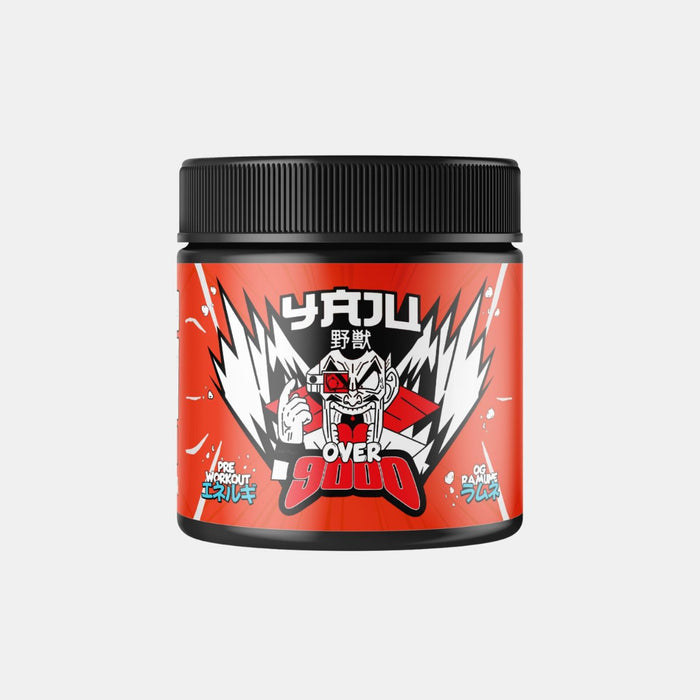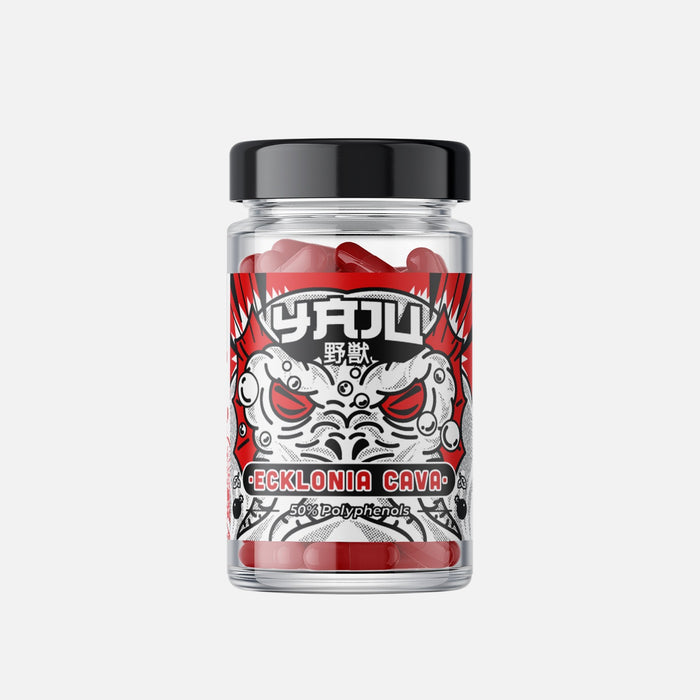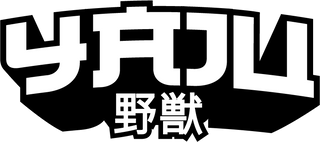General Terms and Conditions
ARTICLE 1 - DEFINITIONS
In these terms, the following is understood as:
- Supplementary agreement: an agreement whereby the consumer acquires products or (digital) services in connection with a distance agreement and these goods, digital content and/or services are delivered by the entrepreneur or by a third party based on an arrangement between that third party and the entrepreneur;
- Cooling-off period: the period within which the consumer can exercise their right of withdrawal;
- Consumer: the natural person who does not act for purposes related to his trade, business, craft, or professional activity;
- Day: calendar day
- Digital content: data that is produced and delivered in digital form
- Duration agreement: an agreement that aims for the regular delivery of goods, services, and/or digital content over a specific period;
- Sustainable data carrier: any tool - including email - that enables the consumer or entrepreneur to store information addressed to them personally in a way that allows for future consultation or use over a period that is aligned with the purpose for which the information is intended, and that allows for unchanged reproduction of the stored information;
- Right of withdrawal: the customer's ability to cancel the distance contract within the reflection period;
- Distance agreement: an agreement concluded between the entrepreneur and the consumer within the framework of an organized system for the remote sale of products, digital content, and/or services, whereby up to and including the conclusion of the agreement, only or also one or more techniques for remote communication are used;
- Technique for remote communication: a means that can be used to conclude an agreement without the consumer and entrepreneur needing to be present in the same space at the same time.
ARTICLE 2 - IDENTITY OF THE ENTREPRENEUR
Name of entrepreneur: YAJU
Acting under the names: www.yaju.nl, YAJU, YAJU Lifestyle
Located at Gessel 33, 3454 MZ Utrecht, Netherlands.
Contact: info@yaju.nl
Accessibility:
From Monday to Friday: 10:00 AM - 5:00 PM
info@yaju.nl
KvK-nummer: 85900184
VAT number Netherlands: NL004168925B27
ARTICLE 3 - APPLICABILITY
- These general terms and conditions apply to every offer made by the entrepreneur and to every distance contract concluded between the entrepreneur and the consumer.
- Before the distance contract is concluded, the text of these general terms and conditions will be made available to the consumer. If this is not reasonably possible, the entrepreneur will indicate before the distance contract is concluded how the general terms and conditions can be viewed at the entrepreneur and that they will be sent to the consumer free of charge as soon as possible upon request.
- If the distance contract is concluded electronically, in deviation from the previous paragraph and before the distance contract is concluded, the text of these general terms and conditions may be made available to the consumer electronically in such a way that it can be easily stored by the consumer on a durable data carrier. If this is not reasonably possible, it will be indicated before the distance contract is concluded where the general terms and conditions can be accessed electronically and that they will be sent to the consumer free of charge upon request, either electronically or in another way.
- In the event that specific product or service terms also apply in addition to these general terms and conditions, the second and third paragraphs shall apply accordingly, and the consumer may always invoke the applicable provision that is most favorable to him in the event of conflicting terms.
ARTICLE 4 - THE OFFER
- If an offer has a limited validity period or is subject to conditions, this will be explicitly stated in the offer.
- The offer includes a complete and accurate description of the products, digital content, and/or services offered. The description is sufficiently detailed to allow for a proper assessment of the offer by the consumer. If the entrepreneur uses images, these are a truthful representation of the products, services, and/or digital content offered. Obvious mistakes or apparent errors in the offer do not bind the entrepreneur.
- Each offer contains such information that it is clear to the consumer what the rights and obligations are that are associated with the acceptance of the offer.
ARTICLE 5 - THE AGREEMENT
- The agreement is concluded, subject to the provisions of paragraph 4, at the moment the consumer accepts the offer and meets the conditions set therein.
- If the consumer has accepted the offer electronically, the entrepreneur shall promptly confirm the receipt of the acceptance of the offer electronically. As long as the receipt of this acceptance has not been confirmed by the entrepreneur, the consumer can dissolve the agreement.
- If the agreement is concluded electronically, the entrepreneur will take appropriate technical and organizational measures to secure the electronic transfer of data and will ensure a safe web environment. If the consumer can pay electronically, the entrepreneur will take appropriate security measures for this purpose.
- The entrepreneur can, within legal frameworks, inform themselves whether the consumer can meet their payment obligations, as well as all those facts and factors that are important for responsibly entering into the distance agreement. If the entrepreneur has good grounds based on this investigation not to enter into the agreement, they are entitled to refuse an order or request with justification or to attach special conditions to the execution.
-
The entrepreneur shall provide the following information to the consumer in writing or in such a way that it can be stored by the consumer in an accessible manner on a durable data carrier, no later than upon delivery of the product, service, or digital content:
a. the visiting address of the entrepreneur's location where the consumer can go for complaints;
b. the conditions under which and the manner in which the consumer can exercise the right of withdrawal, or a clear notification regarding the exclusion of the right of withdrawal;
c. the information about warranties and existing after-sales service;
d. the price including all taxes of the product, service, or digital content; where applicable, the costs of delivery; and the method of payment, delivery, or execution of the distance contract;
e. the requirements for termination of the agreement if the agreement has a duration of more than one year or is of indefinite duration;
f. if the consumer has a right of withdrawal, the model withdrawal form -
In the case of a long-term transaction, the provision in the previous paragraph only applies to the first delivery.
ARTICLE 6 - RIGHT OF WITHDRAWAL
For products:
- The consumer can dissolve an agreement regarding the purchase of a product within a reflection period of 14 days without giving any reasons. The entrepreneur may ask the consumer for the reason for the withdrawal, but cannot oblige them to provide their reason(s).
-
The reflection period mentioned in paragraph 1 starts on the day after the consumer, or a third party designated by the consumer who is not the carrier, has received the product, or:
a. if the consumer has ordered multiple products in the same order: the day on which the consumer, or a third party designated by him, has received the last product. The entrepreneur may refuse an order of multiple products with different delivery times, provided that he has clearly informed the consumer about this prior to the ordering process.
b. if the delivery of a product consists of different shipments or parts: the day on which the consumer, or a third party designated by him, has received the last shipment or the last part;
c. for agreements for regular delivery of products over a certain period: the day on which the consumer, or a third party designated by him, has received the first product.
For services and digital content that is not delivered on a tangible medium:
- The consumer can cancel a service agreement and an agreement for the supply of digital content that is not delivered on a tangible medium within 14 days without giving any reason. The entrepreneur may ask the consumer for the reason for the withdrawal, but cannot oblige them to provide their reason(s).
-
The reflection period mentioned in paragraph 3 starts on the day following the conclusion of the agreement.
Extended reflection period for products, services, and digital content that has not been delivered on a tangible medium when not informing about the right of withdrawal:
- If the entrepreneur has not provided the consumer with the legally required information about the right of withdrawal or the model withdrawal form, the reflection period expires twelve months after the end of the original reflection period established in accordance with the previous sections of this article.
- If the entrepreneur has provided the information referred to in the previous paragraph to the consumer within twelve months from the start date of the original reflection period, the reflection period expires 14 days after the day on which the consumer received that information.
ARTICLE 7 - OBLIGATIONS OF THE CONSUMER DURING THE COOLING-OFF PERIOD
- During the reflection period, the consumer will handle the product and packaging with care. He will only unpack or use the product to the extent necessary to determine the nature, characteristics, and functioning of the product. The principle here is that the consumer may only handle and inspect the product as he would be allowed to do in a store.
- The consumer is only liable for the depreciation of the product that results from a manner of handling the product that goes beyond what is permitted in paragraph 1.
- The consumer is not liable for the depreciation of the product if the entrepreneur has not provided all legally required information about the right of withdrawal before or at the time of concluding the agreement.
ARTICLE 8 - EXERCISE OF THE RIGHT OF WITHDRAWAL BY THE CONSUMER AND COSTS THEREOF
- If the consumer exercises his right of withdrawal, he must notify the entrepreneur within the reflection period using the model withdrawal form or in another unambiguous manner.
- As soon as possible, but within 14 days from the day following the notification referred to in paragraph 1, the consumer returns the product, or hands it over to (an authorized representative of) the entrepreneur. This is not necessary if the entrepreneur has offered to collect the product themselves. The consumer has observed the return period in any case if he returns the product before the reflection period has expired.
- The consumer returns the product with all supplied accessories, if reasonably possible in its original condition and packaging, and in accordance with the reasonable and clear instructions provided by the entrepreneur.
- The risk and the burden of proof for the correct and timely exercise of the right of withdrawal lies with the consumer.
- The consumer bears the direct costs of returning the product. If the entrepreneur has not stated that the consumer must bear these costs or if the entrepreneur indicates that they will bear the costs themselves, the consumer does not have to bear the costs of return.
- If the consumer revokes after having expressly requested that the performance of the service or the delivery of gas, water, or electricity that has not been made ready for sale begins in a limited volume or certain quantity during the reflection period, the consumer owes the entrepreneur an amount that is proportional to that part of the obligation that has been fulfilled by the entrepreneur at the time of revocation, compared to the full performance of the obligation.
- The consumer does not bear any costs for the execution of services or the delivery of water, gas, or electricity that have not been made ready for sale in a limited volume or quantity, or for the delivery of district heating, if: a. the entrepreneur has not provided the consumer with the legally required information about the right of withdrawal, the cost reimbursement in case of withdrawal, or the model withdrawal form, or; b. the consumer has not expressly requested the commencement of the execution of the service or the delivery of gas, water, electricity, or district heating during the reflection period.
- The consumer bears no costs for the full or partial delivery of digital content not delivered on a tangible medium, if: a. he has not expressly consented to the commencement of the performance of the agreement before the end of the reflection period; b. he has not acknowledged losing his right of withdrawal by giving his consent; or c. the entrepreneur has failed to confirm this statement from the consumer.
- If the consumer exercises their right of withdrawal, all supplementary agreements will be automatically terminated.
ARTICLE 9 - OBLIGATIONS OF THE ENTREPRENEUR UPON WITHDRAWAL
- If the entrepreneur allows the consumer to notify the revocation electronically, he shall promptly send a confirmation of receipt after receiving this notification.
- The entrepreneur will reimburse all payments made by the consumer, including any delivery costs charged by the entrepreneur for the returned product, without delay but within 14 days following the day on which the consumer notifies him of the withdrawal. Unless the entrepreneur offers to collect the product himself, he may wait to refund until he has received the product or until the consumer demonstrates that he has returned the product, whichever occurs first.
- The entrepreneur uses the same payment method for reimbursement that the consumer used, unless the consumer agrees to a different method. The reimbursement is free of charge for the consumer.
- If the consumer has chosen a more expensive delivery method than the cheapest standard delivery, the entrepreneur is not obliged to refund the additional costs for the more expensive method.
ARTICLE 10 - EXCLUSION OF THE RIGHT OF WITHDRAWAL
The entrepreneur can exclude the following products and services from the right of withdrawal, but only if the entrepreneur has clearly stated this in the offer, at least in a timely manner before the conclusion of the agreement:
- Products or services whose price is tied to fluctuations in the financial market over which the entrepreneur has no influence and which may occur within the withdrawal period
- Agreements made during a public auction. A public auction is understood to be a sales method in which products, digital content, and/or services are offered by the entrepreneur to the consumer who is personally present or has the opportunity to be personally present at the auction, under the direction of an auctioneer, and where the successful bidder is obliged to purchase the products, digital content, and/or services;
- Service agreements, after full execution of the service, but only if: a. the execution has begun with the express prior consent of the consumer; and b. the consumer has declared that he loses his right of withdrawal as soon as the entrepreneur has fully executed the agreement;
- 4. Package travel as referred to in Article 7:500 of the Dutch Civil Code and agreements for passenger transport; Service agreements for the provision of accommodation, if the agreement specifies a certain date or period of execution and not for residential purposes, freight transport, car rental services, and catering;
- Agreements regarding leisure activities, if the agreement specifies a certain date or period for the execution thereof;
- According to specifications of the consumer manufactured products, which are not prefabricated and which are produced based on an individual choice or decision of the consumer, or which are clearly intended for a specific person;
- Products that spoil quickly or have a limited shelf life;
- Sealed products that are not suitable for return for reasons of health protection or hygiene and whose seal has been broken after delivery;
- Products that have been irrevocably mixed with other products after delivery due to their nature;
- Alcoholic beverages for which the price has been agreed upon at the conclusion of the contract, but whose delivery can only take place after 30 days, and whose actual value depends on fluctuations in the market that the entrepreneur cannot influence;
- Sealed audio, video recordings and computer software, the seal of which has been broken after delivery;
- Newspapers, magazines or periodicals, excluding subscriptions to them;
- The delivery of digital content other than on a tangible medium, but only if a. the performance has begun with the express prior consent of the consumer; and b. the consumer has stated that he loses his right of withdrawal by doing so.
ARTICLE 11 - COMPLIANCE WITH AGREEMENT AND EXTRA WARRANTY
- During the validity period mentioned in the offer, the prices of the offered products and/or services will not be increased, except for price changes resulting from changes in VAT rates.
- Notwithstanding the previous paragraph, the entrepreneur can offer products or services whose prices are tied to fluctuations in the financial market and over which the entrepreneur has no influence, at variable prices. This tie to fluctuations and the fact that any prices mentioned are indicative prices will be stated in the offer.
- Price increases within 3 months after the conclusion of the agreement are only permitted if they are the result of legal regulations or provisions.
- Price increases three months after the conclusion of the agreement are only permitted if the entrepreneur has stipulated this and: a. they are the result of legal regulations or provisions; or b. the consumer has the authority to terminate the agreement as of the day the price increase takes effect.
- The prices mentioned in the offer of products or services are inclusive of VAT.
ARTICLE 12 - NAMING AGREEMENT AND EXTRA WARRANTY
- The entrepreneur guarantees that the products and/or services meet the agreement, the specifications mentioned in the offer, the reasonable requirements of soundness and/or usability, and the legal provisions and/or government regulations in force on the date of the conclusion of the agreement. If agreed, the entrepreneur also guarantees that the product is suitable for use other than normal use.
- An additional warranty provided by the entrepreneur, their supplier, manufacturer, or importer never limits the statutory rights and claims that the consumer can assert against the entrepreneur based on the agreement if the entrepreneur has failed to fulfill their part of the agreement.
- Extra warranty is understood to mean any commitment by the entrepreneur, their supplier, importer, or manufacturer in which they grant the consumer certain rights or claims that go beyond what they are legally obliged to do in the event that they have failed to fulfill their part of the agreement.
ARTICLE 13 - DELIVERY AND EXECUTION
- The entrepreneur will exercise the utmost care in receiving and executing orders for products and in assessing requests for the provision of services.
- The place of delivery is the address that the consumer has communicated to the entrepreneur.
- Taking into account what is stated in article 4 of these general terms and conditions, the entrepreneur will execute accepted orders with due speed but no later than within 30 days, unless a different delivery period has been agreed upon. If delivery is delayed, or if an order cannot be executed or can only be partially executed, the consumer will be informed of this no later than 30 days after placing the order. In that case, the consumer has the right to dissolve the agreement at no cost and is entitled to any compensation.
- After dissolution in accordance with the previous paragraph, the entrepreneur will promptly refund the amount paid by the consumer.
- The risk of damage and/or loss of products rests with the entrepreneur until the moment of delivery to the consumer or a previously designated representative known to the entrepreneur, unless expressly agreed otherwise.
ARTICLE 14 - LONG-TERM TRANSACTIONS: DURATION, TERMINATION AND RENEWAL
Opzegging:
- The consumer can terminate an agreement that has been entered into for an indefinite period and that involves the regular delivery of products (including electricity) or services at any time, subject to the agreed termination rules and a notice period of no more than one month.
- The consumer can terminate an agreement that has been entered into for a fixed term and that involves the regular delivery of products (including electricity) or services at any time at the end of the fixed term, subject to the agreed termination rules and a notice period of no more than one month.
-
The consumer can cancel the agreements mentioned in the previous sections:
a. terminate at any time and not be limited to termination at a specific time or within a specific period;
b. at least terminate in the same manner as they were entered into by him.
c. always cancel with the same notice period as the entrepreneur has agreed for themselves.
Verlenging:
- An agreement that is entered into for a fixed term and that aims to provide products (including electricity) or services on a regular basis may not be tacitly extended or renewed for a fixed duration.
- Notwithstanding the previous paragraph, an agreement that is entered into for a fixed term and that involves the regular delivery of daily, news, and weekly newspapers and magazines may be tacitly extended for a specific duration of up to three months, provided that the consumer can terminate this extended agreement at the end of the extension with a notice period of no more than one month.
- An agreement that has been entered into for a fixed term and that aims to provide products or services on a regular basis may only be tacitly extended for an indefinite period if the consumer can terminate it at any time with a notice period of no more than one month. The notice period is a maximum of three months in the case where the agreement aims to provide daily, news, and weekly newspapers and magazines regularly, but less than once a month.
- An agreement with a limited duration for the delivery of daily, news, and weekly newspapers and magazines (trial or introductory subscription) will not be tacitly renewed and will automatically end after the trial or introductory period.
- If an agreement has a duration of more than one year, the consumer may terminate the agreement at any time after one year with a notice period of no more than one month, unless reasonableness and fairness oppose termination before the end of the agreed duration.
ARTICLE 15 - PAYMENT
- Unless otherwise specified in the agreement or additional terms, the amounts owed by the consumer must be paid within 14 days after the start of the reflection period, or in the absence of a reflection period, within 14 days after the conclusion of the agreement. In the case of an agreement for the provision of a service, this period begins on the day after the consumer has received confirmation of the agreement.
- When selling products to consumers, the consumer may never be required in the general terms and conditions to make an advance payment of more than 50%. When an advance payment has been agreed upon, the consumer cannot assert any rights regarding the execution of the relevant order or service(s) before the agreed advance payment has been made.
- The consumer has the obligation to promptly report any inaccuracies in provided or stated payment details to the entrepreneur.
- If the consumer does not timely fulfill his payment obligation(s), he is, after being pointed out by the entrepreneur about the late payment and the entrepreneur granting the consumer a period of 14 days to still fulfill his payment obligations, liable for the statutory interest on the outstanding amount after the expiration of this 14-day period, and the entrepreneur is entitled to charge the extrajudicial collection costs incurred by him. These collection costs amount to a maximum of: 15% on outstanding amounts up to € 2,500; 10% on the subsequent € 2,500; and 5% on the next € 5,000, with a minimum of € 40. The entrepreneur may deviate from the mentioned amounts and percentages in favor of the consumer.
ARTICLE 16 - LIABILITY
- YAJU is not liable for damages arising as a result of any shortcoming in the fulfillment of its obligation(s) towards the counterparty. Any claim for compensation, for whatever reason, is excluded, unless there is intent or gross negligence on the part of YAJU or its managerial subordinates.
- YAJU is likewise not liable for the actions of (non-managerial) subordinates or others that it has engaged in the context of the execution of the agreement.
- YAJU is not liable for advice provided by or on behalf of it.
- The other party must always give YAJU the opportunity to resolve a complaint, otherwise the liability claim and thus the compensation will lapse.
- If YAJU is nevertheless liable, liability (for any reason whatsoever) is limited to the amount that YAJU has received from the counterparty under the relevant agreement.
ARTICLE 17 - COMPLAINTS PROCEDURE
- The entrepreneur has a sufficiently disclosed complaints procedure and handles the complaint in accordance with this complaints procedure.
- Complaints about the execution of the agreement must be submitted to the entrepreneur within a reasonable time after the consumer has identified the defects, fully and clearly described.
- Complaints submitted to the entrepreneur will be answered within a period of 14 days from the date of receipt. If a complaint requires a foreseeably longer processing time, the entrepreneur will respond within the 14-day period with an acknowledgment of receipt and an indication of when the consumer can expect a more detailed response.






